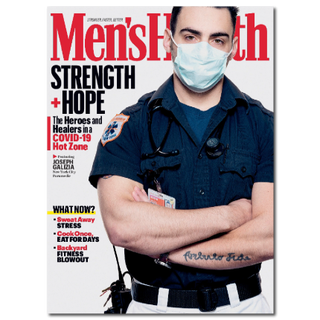How to Train to Run Your Fastest Mile
For the past few years, Iron-people and cardiovores have tried to one-up one another with epic training efforts, competing on the number of miles they run, the number of Ironmans they do, and the number of ultra-early-morning sessions they knockout. Yet one of the most effective ways to train—and one of the most beneficial for your physical and mental health—has always been the shortest and the simplest: mastering the mile.
“The mile is an amazing blend of speed and endurance, and a good indicator of your overall cardiovascular health,” says Danny Mackey, head coach of the Brooks Beasts, an elite pro track team. “You can hammer it, and because it doesn’t take long to recover, you can run it again soon to see how much you’ve improved. You can’t say that about a marathon, where most people are just trying to finish.”
Even better, Mackey says you’ll notice yourself getting faster in three weeks. While a typical in-shape guy can run a mile in ten minutes, running one in 6:30—under the 6:47 average time for a man in the 5th Avenue Mile, the largest one-mile race in the country—can win you bragging rights. (The fastest finishing time in that race last year was 3:52.) Here’s exactly how to get after it.
3 Key Workouts to Run Your Fastest Mile

To incinerate your current mile PR, tackle each of the following workouts from Mackey every week for eight weeks. Order doesn’t matter, as long as you’re taking a day in between workouts to give your body time to soak up your gains and recover.
200 Meter Repeats
Run 200 meters // Rest// Repeat 10 times
Run these repeats at a pace that’s 2 to 4 seconds faster than your mile pace. However long it takes you to run one, rest for three times that long before the next repeat. (If you do the 200 in 45 seconds, take a 2:15 rest.) Run the tenth sprint as fast as the first.
Sprints build the muscle strength and power it takes to hold speed over the entire mile, and doing them in this repeating format will help you dial in your form.
Hill Endurance Session
Run up a hill for 60 to 90 seconds // Walk back down // Repeat 8 times
Find a long hill outdoors or set a treadmill to an incline. (The hill should be steep enough that running up it feels like a nine out of ten in terms of effort.)
This increases your stamina and prepares you psychologically to go all out in the home-stretch. “It will be painful in the final 400, and this gets you familiar with that feeling,” Mackey says.
Tempo Run
Run 3 miles
Start at a pace that feels like a six out of ten in terms of effort and gradually increase to a seven, Mackey says. This should be about 45 seconds to 1 minute slower than your mile pace and feel consistently challenging.
A tempo run pushes you out of your comfort zone with a pace that feels just a touch faster than you’d want to be running, and this constant effort builds your endurance for race day.

Source: Read Full Article
